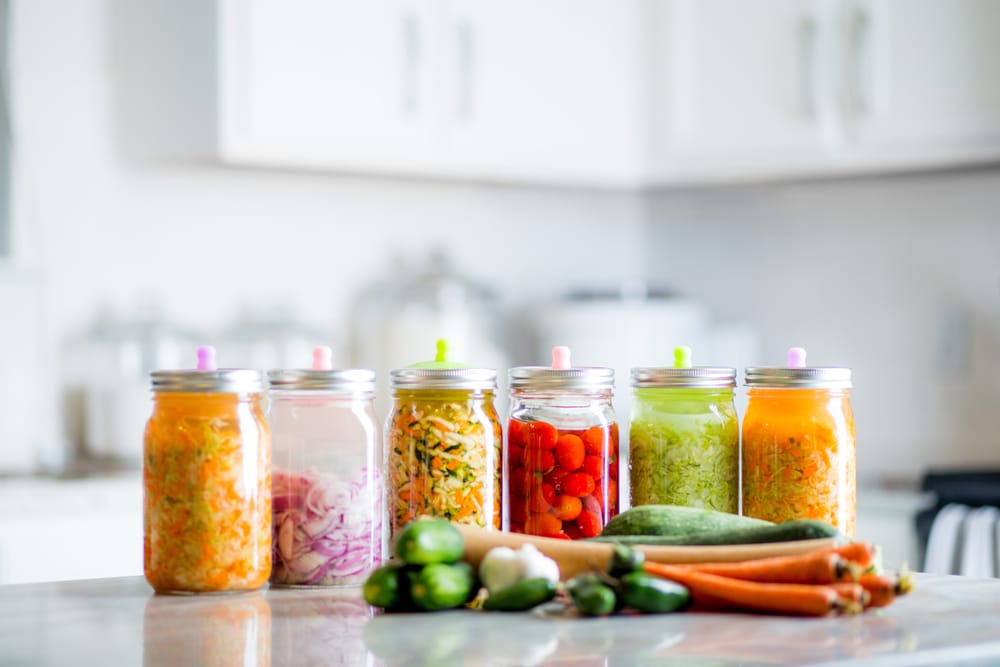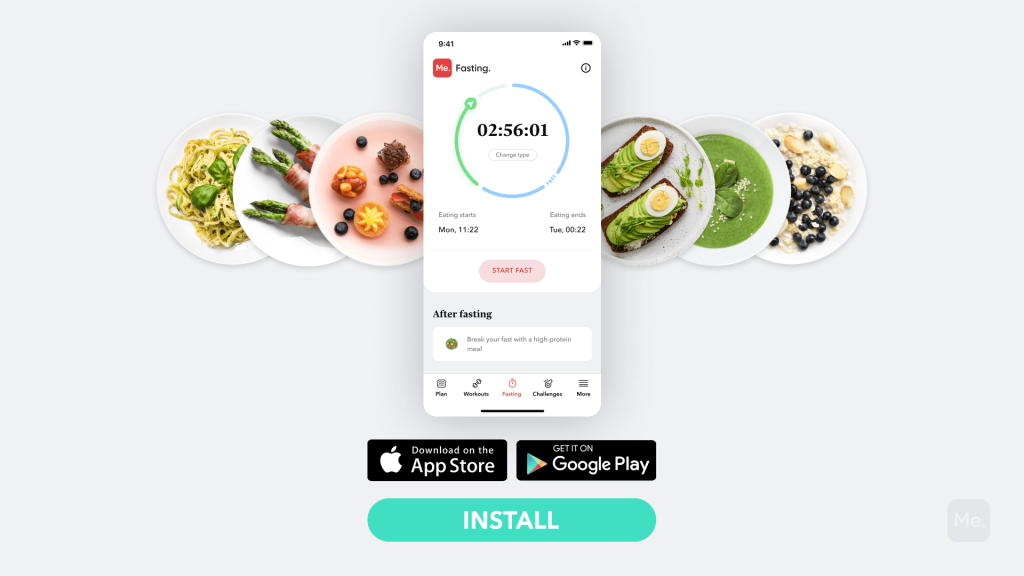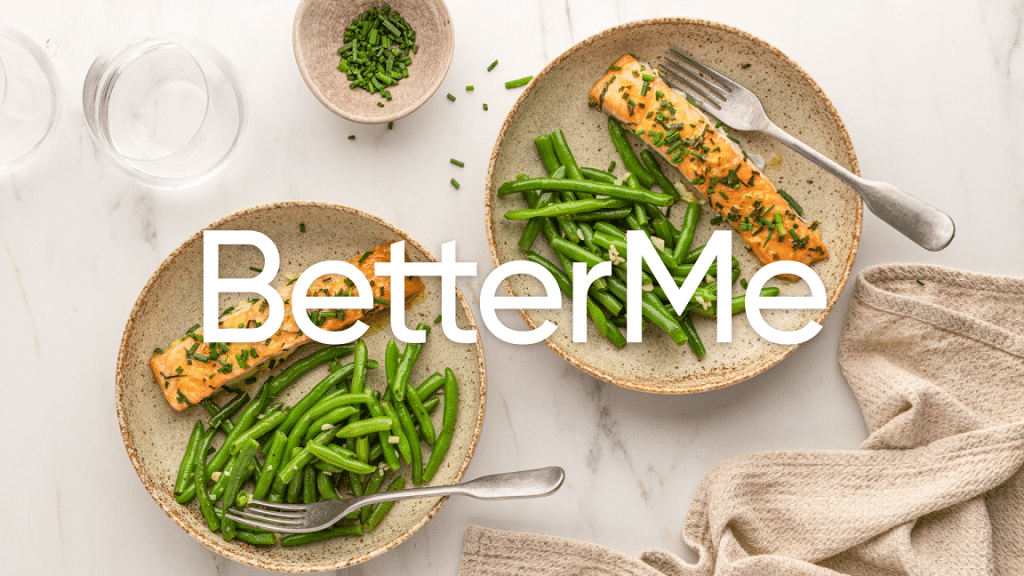Your colon is the last stop for the digestion of food. It’s built for a special task: fermentation. As soon as undigested food passes from your small intestine into your colon, trillions of bacteria go to work. These bacteria break down the food, creating byproducts like short chain fatty acids (SCFAs) and gasses (3). Colonic fermentation is a good thing. Those SCFAs are used by our intestinal cells as fuel and facilitate the reabsorption of water and electrolytes in the colon. For some people, however, such as those with Irritable Bowel Syndrome (IBS), the presence of certain fermentable carbohydrates (FODMAPs) in the colon leads to the overproduction of gas, which can worsen their uncomfortable digestive symptoms. This may have something to do with a disturbance in the makeup of bacteria in the colon (15). Certain foods are more likely to cause fermentation in the colon than others. If you are struggling with digestive issues, your gastroenterologist may suggest that you avoid certain foods that ferment in the colon.
Foods That Ferment In The Colon: What Causes Fermentation In The Colon?
Fermentation in the colon is a natural process that occurs after eating. It helps break down food and extract nutrients (24). It targets foods that your small intestine is unable to digest, such as fiber and resistant starches.
Several things can contribute to an increase in fermentation in the gut and for some people may result in discomfort, including:
- Rapidly increasing your fiber intake;
- Eating foods that are high in sugar;
- Eating foods that are fermented or pickled;
- Consuming too much alcohol;
- Taking antibiotics; and
- Having a low level of stomach acidity.
The good bacteria in your gut perform the fermentation process, and they create short-chain fatty acids and other nutrients that are beneficial to your health (1).
An imbalance in gut bacteria may result in an overproduction of gas and less production of the useful byproducts of fermentation. This can worsen the symptoms of someone with conditions such as inflammatory bowel disease (IBD), irritable bowel syndrome (IBS) or colitis (14).
Several things can disrupt the balance of good and bad bacteria in your gut, which can lead to fermentation problems (12).
These include:
- Taking antibiotics;
- Eating a high saturated fat diet;
- Having a chronic illness such as IBS or IBD;
- Not getting enough fiber in your diet;
- Drinking alcohol; and
- Smoking cigarettes.
Foods That Ferment In The Colon: Which Foods Ferment In The Colon?
The foods in this list can increase the rate of fermentation in your gut and result in negative side effects if you are prone to them, such as bloating, gas, or cramping.
These foods are also called high FODMAP foods. FODMAP stands for Fermentable Oligosaccharides, Disaccharides, Monosaccharides, And Polyols. These are all types of carbohydrates that the small intestine cannot digest (16).
Avoiding high FODMAP foods is sometimes recommended for people with IBS or IBD. It may also relieve symptoms like bloating and gas (16). Usually, the patient works closely with their doctor and dietitian to eliminate most of these foods for a set amount of time, then slowly adds them back one by one to determine which specific foods trigger their symptoms. One should not attempt a low FODMAP diet on their own, nor should they remain in the elimination phase for an extended period of time.
Here are ten foods that ferment in the colon:
Processed Foods
Processed foods are high in FODMAPs because they tend to contain a lot of high-FODMAP ingredients. These ingredients can include honey, agave nectar, high-fructose corn syrup, and other sweeteners.
When you eat processed foods such as cookies, cakes, and other sweets, you’re getting a lot of fructose all at once. This can overload your gut and cause symptoms such as bloating, gas, and diarrhea (4).
Fruit Juices
Like processed foods, fruit juices are often high in FODMAPs because they contain a lot of added sugar. Fruit juices can be a major source of FODMAPs for people with IBS (6).
You’ll want to avoid fruit juices whenever possible. Instead, try to eat whole fruits, especially ones that are lower in fructose. You can get a specific list from your dietitian.
Bread And Other Wheat Based Products
Bread and other wheat products are high-FODMAP foods.
You’ll want to avoid bread during your elimination phase. Some other grains are high in FODMAPs too, ych as amaranth, barley and rye. Low FODMAP and gluten-free are not the same thing, so be careful not to conflate the two. You can get a more comprehensive list from your dietitian.
Certain Vegetables
Certain vegetables are high in FODMAPS, such as asparagus, brussels sprouts, cauliflower, leeks, and mushrooms. Lower FODMAP vegetables include carrots, eggplant, tomatoes, spinach, and zucchini. For a more comprehensive list, talk to your dietitian.
Read More: The Gut-Brain Connection Diet: A Simple Guide (With A Food List)
Onions
Onions are a high-FODMAP food because they contain a lot of fructans. Fructans are a type of sugar that the small intestine cannot digest (8).
When you eat onions, the fructans ferment in your gut and might cause problems like bloating, gas, and diarrhea if you are sensitive to them.
You’ll want to avoid eating raw onions whenever possible. If you do eat them, try to cook them thoroughly so that the fructans are broken down.
Garlic
Garlic is a high-FODMAP food because it contains a lot of fructans. Fructans are a type of sugar that the small intestine cannot digest. They are passed on to the colon, where they can be fermented by gut bacteria (8).
When you eat too much garlic, the fructans might cause symptoms like bloating, gas, and diarrhea if you are sensitive to them.
You’ll want to avoid eating raw garlic whenever possible. If you do eat it, try to cook it thoroughly so that the fructans are broken down.
Dairy Products
Dairy products are high in FODMAPs because they contain a lot of lactose.
When you eat dairy products, the lactose can ferment in your gut and cause problems like bloating, gas, and diarrhea if you are sensitive (2).
Milk, yogurt, ice cream, and other dairy products are high in FODMAPs. Harder cheeses have usually lost most of their lactose during the cheesemaking process, so they may be okay to eat. Talk to your dietitian for more specifics
Beans And Lentils
Beans and lentils are good plant-based sources of protein. However, they are also high in FODMAPs.
When you eat beans and lentils, the oligosaccharides can ferment in your gut and cause problems like bloating, gas, and diarrhea (9).
You’ll want to avoid eating beans and lentils during your elimination phase. Later on when you do eat them, soak them overnight and then cook them thoroughly. Soaking them helps to lower the contents of oligosaccharides (21).
High Fructose Fruits
Fruits are a good source of fiber. However, some fruits are also high in FODMAPs.
When you eat FODMAP fruits, the oligosaccharides can ferment in your gut and cause problems like bloating, gas, and diarrhea (9).
Some examples of high FODMAP fruits are apples, peaches, pears, and watermelon. You can get a more comprehensive list from your dietitian.
What Should You Eat to Improve Gut Health?
Only a very small subset of people need to avoid or limit high FODMAP foods. As for the rest of us, there are some simple things we can do to keep our guts healthy.
As we mentioned earlier, your gut is home to trillions of bacteria. These bacteria play an important role in your overall health.
When your gut bacteria are healthy, they can help to keep your gut healthy. They can also help to protect you from diseases like cancer and heart disease (14).
To improve the health of your gut bacteria, you need to eat a variety of different foods. Predominantly, you need probiotics and prebiotics (5).
Yanking yourself back in shape has never been so easy with our game-changing fitness app! Start transforming your life with BetterMe!
What Are Probiotics?
Probiotics are foods that contain live bacteria. These bacteria help to improve the health of your gut bacteria. They break down food, produce vitamins, and protect your gut from harmful bacteria (13).
There are many different probiotic foods available. Some of the most common probiotic foods include:
- Yogurt (with live cultures)
- Kefir
- Sauerkraut
- Kimchi
- Pickles
- Miso
- Tempeh
What Are Prebiotics?
Prebiotics are foods that contain non-digestible substances. These substances help to promote the growth of healthy gut bacteria (17).
Prebiotic foods include:
- Asparagus
- Bananas
- Beets
- Broccoli
- Brussel sprouts
- Garlic
- Onions
- Leeks
- Wheat germ
Eating a variety of probiotic and prebiotic foods is the key to improving gut health. Not only will this help to keep your gut healthy, but it will also help to boost your overall health (5).
You may have noticed that many of these foods are also high FODMAP foods. That isn’t a coincidence. FODMAPs function as prebiotics in most people. Only those who are sensitive should avoid them, and it may only be specific high-FODMAP foods that ultimately need to be avoided.
Prebiotic supplements are also available and are another way to make sure you’re getting enough of these important nutrients.
Other Ways To Improve Your Gut Health
The food you eat plays a major role in gut health, but there are other things you can do to improve your gut health as well, such as:
Manage Your Stress Levels
In addition to the many other benefits that reducing stress levels can have on your body, it’s also good for your gut.
Stress alters your gut health by interfering with the composition of gut bacteria. This happens via stress hormones, inflammation, and autonomic alterations (22).
So how can you reduce stress levels? There are many different ways, but some of the most effective methods include exercise, yoga, meditation, and deep breathing exercises.
If you find that you’re constantly stressed out, try to incorporate one or more of these into your daily routine.
Get Regular Exercise
Exercise is a great way to improve gut health, as it helps keep our digestive system functioning. It is associated with an increased number of beneficial microbial species. Exercise also enriches the microflora diversity and improves the development of commensal bacteria (7).
Exercise also helps reduce stress, which is another factor that can affect gut health. When we’re stressed, our body releases cortisol, a hormone that can negatively impact the digestive system (23).
Read More: Biotin Rich Foods Vegetarian Should Add To Their Diet Plan
Get More Sleep
Sleep and gut health are closely linked. Many experts believe that the quality of your sleep can have a significant impact on your gut health.
There are several ways that better sleep can improve gut health.
First, lack of sleep can lead to inflammation in the gut. This inflammation can cause damage to the gut lining and worsen the symptoms of gastrointestinal issues, such as IBS and IBD (19).
Lack of sleep can also lead to weight gain (20). When you’re tired, you’re more likely to indulge in unhealthy foods, which can have a negative impact on your gut health.
Finally, lack of sleep can lead to a weakened immune system. This might make you more susceptible to gastrointestinal infections (18).
If you’re struggling with poor sleep, there are several things you can do to improve your gut health.
- Go to bed and wake up at the same time every day.
- Make sure your bedroom is dark, quiet, and cool.
- Avoid watching television or using electronic devices in bed.
- Limit caffeine and alcohol consumption.
- Eat a healthy diet that includes plenty of fruits, vegetables, and whole grains.
- Exercise regularly.
- Talk to your doctor if you’re experiencing gastrointestinal problems. He or she may be able to recommend a treatment plan that can help improve your gut health.
If you wish to cinch your waist, tone up your bat wings, blast away the muffin top – our fitness app was created to cater to all your needs! BetterMe won’t give excess weight a chance!
Foods That Ferment In The Colon: The Bottom Line
Food fermenting in the colon is a natural and healthy process. However, if you’re experiencing digestive issues, your doctor may recommend that you avoid or reduce these foods. This should be done carefully and while working closely with your doctor and dietitian. For most people, probiotic and prebiotic foods are a good way to make sure you’re getting the nutrients your gut needs.
DISCLAIMER:
This article is intended for general informational purposes only and does not serve to address individual circumstances. It is not a substitute for professional advice or help and should not be relied on for making any kind of decision-making. Any action taken as a direct or indirect result of the information in this article is entirely at your own risk and is your sole responsibility.
BetterMe, its content staff, and its medical advisors accept no responsibility for inaccuracies, errors, misstatements, inconsistencies, or omissions and specifically disclaim any liability, loss or risk, personal, professional or otherwise, which may be incurred as a consequence, directly or indirectly, of the use and/or application of any content.
You should always seek the advice of your physician or other qualified health provider with any questions you may have regarding a medical condition or your specific situation. Never disregard professional medical advice or delay seeking it because of BetterMe content. If you suspect or think you may have a medical emergency, call your doctor.
SOURCES:
- A review on the food digestion in the digestive tract and the used in vitro models – ScienceDirect (2021, sciencedirect.com)
- Causes and diagnosis of lactose intolerance (2021, ncbi.nlm.nih.gov)
- Colonic fermentation: a neglected topic in human physiology education (2010, journals.physiology.org)
- Dietary Fructose and Gastrointestinal Symptoms: A Review (2004, journals.lww.com)
- Effects of Probiotics, Prebiotics, and Synbiotics on Human Health 2017, mdpi.com)
- Efficacy of the low FODMAP diet for treating irritable bowel syndrome: the evidence to date (2016, ncbi.nlm.nih.gov)
- Exercise Modifies the Gut Microbiota with Positive Health Effects (2017, hindawi.com)
- Fructan – an overview (n.d., sciencedirect.com)
- Galacto-oligosaccharides and bowel function (2016. ncbi.nlm.nih.gov)
- Gastrointestinal complications of diabetes mellitus (2013, ncbi.nlm.nih.gov)
- Gluten-Free Products for Celiac Susceptible People(2018, frontiersin.org)
- Gut Microbiome: Profound Implications for Diet and Disease (2019, mdpi.com)
- How Probiotics Affect the Microbiota | Cellular and Infection Microbiology (2020, frontiersin.org)
- Impacts of Gut Bacteria on Human Health and Diseases (2015, mdpi.com)
- Irritable bowel syndrome (2016, ncbi.nlm.nih.gov)
- Low-FODMAP Diet for Treatment of Irritable Bowel Syndrome (2012, ncbi.nlm.nih.gov)
- Prebiotics: Definition, Types, Sources, Mechanisms, and Clinical Applications (2019, ncbi.nlm.nih.gov)
- Sleep and immune function (2011, link.springer.com)
- Sleep and Inflammatory Bowel Disease: Exploring the Relationship Between Sleep Disturbances and Inflammation (2013, ncbi.nlm.nih.gov)
- Sleep deprivation and obesity in adults: a brief narrative review (2018, ncbi.nlm.nih.gov)
- Soaking the common bean in a domestic preparation reduced the contents of raffinose-type oligosaccharides but did not interfere with nutritive value (2002, pubmed.ncbi.nlm.nih.gov)
- Stress, depression, diet, and the gut microbiota: human–bacteria interactions at the core of psychoneuroimmunology and nutrition (2020, ncbi.nlm.nih.gov)
- Stress & the gut-brain axis: Regulation by the microbiome – ScienceDirect (2017, sciencedirect.com)
- The control and consequences of bacterial fermentation in the human colon (1991, onlinelibrary.wiley.com)















